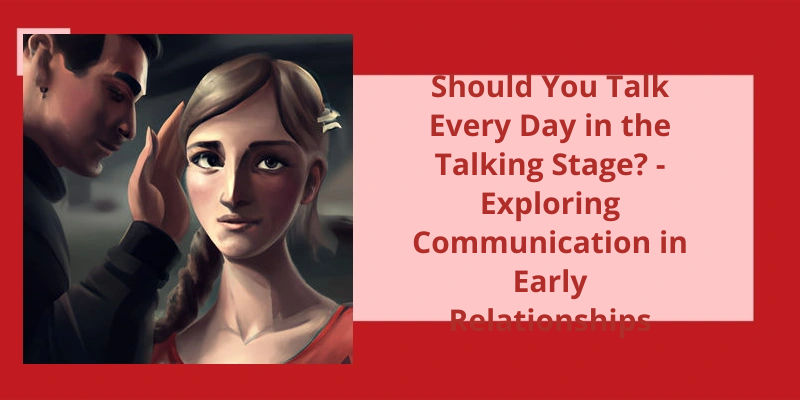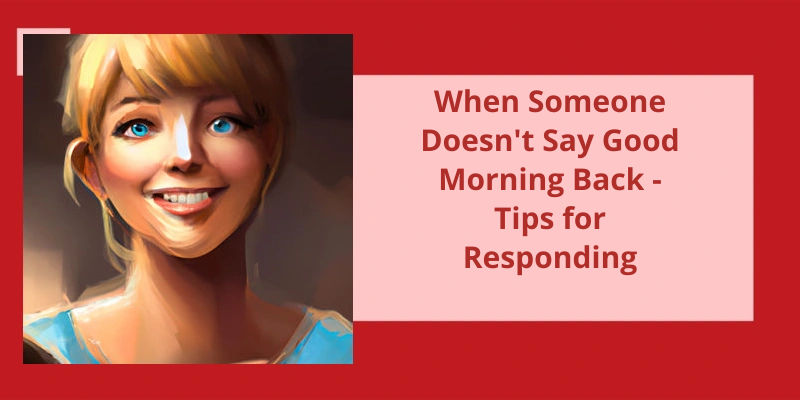Navigating a breakup can be incredibly difficult, particularly when it comes to the question of whether or not you should reach out to mutual friends for information about your ex. It's a natural instinct to want answers, closure, or perhaps even some insight into what went wrong. Yet, the truth behind seeking this kind of information is a topic filled with nuance and potential pitfalls. On the one hand, seeking the perspectives of trusted mutual friends can provide comfort, validation, or even shed light on aspects of the relationship that may have been obscured. On the other hand, this quest for information can quickly become a double-edged sword, leading to speculation, misunderstandings, and potential damage to not only your own emotional well-being but also the relationships you hold dear. It’s crucial to approach the decision of whether or not to ask mutual friends about your ex with careful consideration, weighing the potential benefits against the potential harm that could be inflicted. By examining the truth behind this dilemma, we can better equip ourselves to make a decision that aligns with our well-being and the well-being of those around us.
Should I Talk to Mutual Friends About Breakup?
When going through a breakup, it’s natural to want to seek solace in the company of friends. They’re often the ones we turn to when we want to vent or seek advice. However, when it comes to mutual friends, it may be best to tread lightly. Engaging in trash-talking or constantly rummaging through the details of the breakup can make things incredibly uncomfortable for these individuals.
Mutual friends find themselves caught in a difficult position when it comes to a breakup between two of their close pals. They may want to support you, but they also have a preexisting relationship with your ex. By discussing the intricacies of your breakup or bad-mouthing your ex, you risk putting a strain on the friendships shared among the group.
Additionally, airing your grievances to mutual friends can create an atmosphere of gossip and negativity. It may even lead to them feeling torn between two loyalties. As much as your friends may listen to your venting, it’s important to remember that constantly dwelling on the past can prevent everyone from moving on and growing from the experience.
Instead, consider seeking therapy or confiding in trusted friends who aren’t connected to your ex. These individuals can provide an unbiased perspective, offer constructive advice, and help you process your emotions in a healthier and more productive way. Allow your mutual friends to maintain their own relationship with your ex without dragging them into the middle of your breakup.
Ultimately, it’s crucial to realize that mutual friendships aren’t outlets for venting or trash-talking your ex. Respect the boundaries of these relationships and focus on surrounding yourself with positive influences who can support your healing process without jeopardizing the friendships you share with others.
The Importance of Setting Boundaries With Mutual Friends During a Breakup.
When going through a breakup, it’s essential to establish clear boundaries with mutual friends. While it may be tempting to reach out to them for information or updates about your ex, it’s generally best to avoid doing so.
By setting boundaries, you’re allowing yourself the space and time needed to heal and move on from the relationship. Constantly being updated about your ex’s life can hinder the healing process and make it more challenging to let go.
Additionally, asking mutual friends about your ex can put them in an awkward position. They may feel torn between their loyalty to both parties and may unintentionally share biased or one-sided information, causing further confusion and heartache.
Respecting mutual friends’ boundaries also helps maintain healthy friendships in the long run. By avoiding the topic of your ex and focusing on other aspects of your life, you demonstrate maturity and respect for the friendship. This approach allows you to cultivate stronger connections with your mutual friends, independent of your past relationship.
Ultimately, setting boundaries with mutual friends during a breakup allows you to prioritize your well-being, maintain healthy friendships, and work towards healing and personal growth.
It’s a question that lingers in the minds of many: should you ask out your ex’s friend? While opinions on this matter may vary, relationship expert Engle believes that if you genuinely care about this person and envision a future together, the fact that they’re friends with your ex shouldn’t hinder your pursuit of happiness.
Should I Ask Out My Ex’s Friend?
When it comes to dating your exs friend, it’s natural to want to seek the opinions and advice of mutual friends. However, navigating this situation can be tricky and may require a thoughtful approach. While some people may have strong opinions about dating within the same social circle, ultimately, it’s the connection between two individuals that should be the determining factor.
Relationship expert, Engle, suggests that if you genuinely care about someone and see a potential future together, the past relationship with their friend shouldn’t hinder your pursuit of happiness. If both parties are interested in each other and are willing to approach the situation with sensitivity and open communication, there’s no reason why a prior connection should prevent a new one.
Before making any decisions, it’s important to have an open and honest conversation with the mutual friend. Express your intentions and ask for their thoughts and feelings regarding the situation. Communication is key in maintaining a sense of respect and understanding within the social circle, avoiding any potential tension or hurt feelings.
While seeking the opinions of mutual friends is natural, it’s also essential to trust your own judgment. Consider your own feelings for this person and evaluate if the potential relationship is worth pursuing. Only you can truly determine if the connection is genuine and if it’s the potential for a healthy and fulfilling future.
It’s important to remember that every situation is unique, and peoples opinions may vary. What matters most is your genuine feelings for the person and your ability to navigate the situation with respect and integrity. Trust yourself and your judgment as you make decisions about pursuing a relationship with your exs friend.
Open communication and honesty are essential in a healthy relationship, including discussing past romantic encounters. While it can be beneficial to share information about your ex-lover with your current partner, excessive and frequent references to your past can have detrimental effects on your relationship.
Is It OK to Tell People About Your Ex?
When it comes to discussing your ex with others, it’s important to tread carefully. While sharing information about past relationships can help your current partner understand your history, excessive references to your ex can have detrimental effects on your present relationship. The key lies in finding the right balance.
It’s natural to want your current partner to know about your previous romantic experiences. Honesty and open communication are crucial for building trust in any relationship. By discussing your past with your partner, you allow them to gain insight into your journey and better understand the person you’re today.
However, it’s essential to consider your partners feelings and boundaries as well. Talking excessively or unnecessarily about your ex can make your current partner feel inadequate or uncomfortable. It might lead to insecurities or doubts about the strength of your bond. Instead, focus on the ways youve grown and the lessons youve learned from past relationships, rather than dwelling on specific details about your ex.
Furthermore, constantly referring to your ex could send a message that you’re emotionally unavailable or still attached to your past. It may give your current partner the impression that they’re sharing you with someone else, which can be damaging to their self-esteem and the foundation of your relationship.
Ultimately, the decision to talk about your ex with mutual friends or acquaintances should be approached with caution. While seeking advice or insights from trusted confidants can be helpful, it’s essential to ensure that the conversations remain respectful and focused on personal growth rather than rehashing the past.
In some cases, when your ex starts asking about you, it may indicate that they still have lingering emotions or regret about ending the relationship. It could be a sign that they miss you and are curious about your current situation. Whether they reach out to your friends, relatives, or even directly to you, these actions suggest that they’re seeking connection or validation. This article will explore different scenarios to help you understand what it means if your ex is asking about you.
What Does It Mean if Your Ex Is Asking About You?
If your ex is asking about you, it could mean that they still have feelings for you. Repeatedly inquiring about your well-being indicates that there might be lingering emotions. This curiosity may extend beyond just you and might also involve reaching out to your mutual friends, family, or even directly contacting you. Such actions suggest that your ex may regret the decision to end the relationship.
When someone takes the initiative to ask about your current status, it implies that they’re considering the possibility of reconnecting with you. They could be seeking reassurance that you’re still available or interested in reconciling. It could also signify that they’re curious to know if you’ve moved on or if there’s still a chance for a second chance.
It’s important, however, to approach these inquiries with caution. While they may indicate a desire to reconnect, they could also be driven by other motives, such as jealousy or curiosity. It’s crucial to evaluate the context and the intentions behind your exs questions. Consider their past behavior, communication patterns, and the reasons for the breakup to gain a clearer understanding of their true intentions.
Ultimately, whether or not you decide to respond to or engage with your exs inquiries depends on your own feelings and readiness to potentially revisit the past. Take into account your own emotional well-being and whether reconnecting with your ex aligns with your own desires and goals. Trust your intuition and take the time to reflect on what’s best for you before responding to any inquiries from your ex or discussing the situation with mutual friends. Remember, it’s important to prioritize your own happiness and growth moving forward.
Navigating a breakup can be challenging, and deciding whether or not to share the news with others is a personal choice. However, before opening up about your breakup to friends and family, it’s crucial to give yourself time to reflect on your emotions. It’s also important to consider who you trust and feel comfortable confiding in. For those whom you may not want to share all the intimate details of your breakup with, it can be helpful to have a general statement in mind that’s both cautious and discreet.
Is It Bad to Tell People About Your Breakup?
Ending a relationship can be a difficult and emotional experience. When going through a breakup, it’s natural to want to seek support and share your feelings with others. However, before opening up to friends and acquaintances about your breakup, it’s crucial to take some time to understand and process your own emotions.
It’s important to be mindful of who you choose to confide in. While some friends may provide valuable support and guidance, others may unintentionally add to your distress or spread gossip. Therefore, it’s essential to carefully consider whom you trust and feel comfortable discussing your breakup with. You don’t have to share every detail with everyone; it’s okay to be selective and keep things private if it feels right for you.
For those individuals you may feel uncomfortable confiding in, it can be helpful to have a general statement prepared. This way, you can politely acknowledge the breakup without divulging too much personal information. Some people prefer to keep their private lives more discreet, and that’s perfectly acceptable. It’s your decision to share as much or as little as you feel comfortable with.
Furthermore, it’s crucial to remember that not everyone needs to know the intimate details of your breakup. Sharing personal information with mutual friends can create awkward situations and may even put them in a compromising position. It’s best to respect boundaries and keep certain aspects of your breakup between yourself and your ex-partner.
Conclusion
However, it’s important to consider the potential consequences and implications before reaching out. While hearing a different perspective or gaining insights about your ex may provide temporary relief or validation, it’s crucial to prioritize your personal growth and well-being. Taking the time to heal, reflect, and direct your energy towards self-care and self-discovery will ultimately lead to a healthier and more fulfilling path forward. Trusting your own instincts and surrounding yourself with supportive individuals who encourage personal growth can serve as powerful tools in moving on from a past relationship. Ultimately, it’s up to you to determine the best course of action for your healing process and to stay focused on your own emotional well-being.






